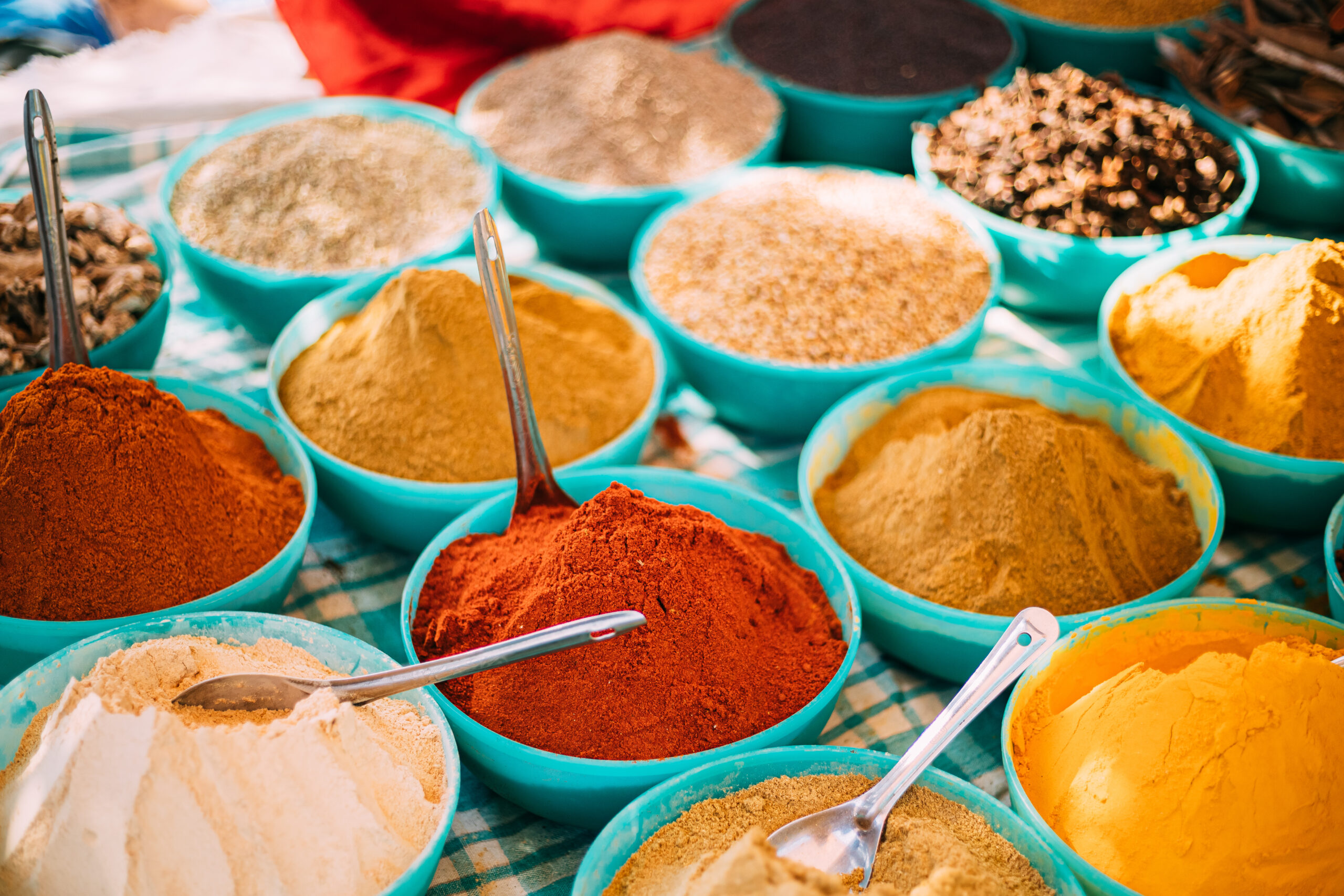
Table of Contents
Introduction
The Rich History of Tunisian Spices
The use of Tunisian spices dates back centuries, influenced by a myriad of cultures including Berber, Arabic, French, and Turkish. This diverse heritage has led to a unique blend of flavors that characterize Tunisian cuisine. Spices were historically traded along the Mediterranean and across the Sahara, making Tunisia a melting pot of culinary traditions.
Common Tunisian Spices
- Harissa: Often referred to as the crown jewel of Tunisian spices, harissa is a hot chili pepper paste made from roasted red peppers, garlic, and a variety of spices. It’s used as a condiment and an ingredient in many Tunisian dishes.
- Ras El Hanout: This complex spice blend translates to “head of the shop,” indicating the best spices a vendor has to offer. It includes a mix of over a dozen spices such as cinnamon, cloves, cumin, coriander, and nutmeg, offering a robust and aromatic profile.
- Tabil: A staple in Tunisian cuisine, tabil is a ground spice mix made from coriander seeds, caraway seeds, garlic, and chili powder. It’s often used to flavor meat and vegetable dishes.
- Cumin: Known for its earthy and warm flavor, cumin is used extensively in Tunisian cooking. It pairs well with other spices and is a key ingredient in many spice blends.

- Coriander: Both the seeds and the fresh leaves (cilantro) are used in Tunisian cuisine. Coriander seeds add a citrusy, sweet flavor to dishes.
- Caraway: Caraway seeds have a slightly bitter, earthy taste and are commonly used in breads and spice blends like tabil.
- Paprika: This spice, made from dried and ground red peppers, comes in sweet and hot varieties. It adds color and flavor to many dishes.
- Cayenne Pepper: Known for its fiery heat, cayenne pepper is used to add spice to a variety of dishes, including stews and sauces.
- Black Pepper: A universal spice, black pepper is used to add heat and depth to many Tunisian dishes.
- Turmeric: This bright yellow spice is known for its earthy flavor and is often used to color and flavor rice and stews.
- Saffron: One of the most expensive spices in the world, saffron adds a distinctive flavor and vibrant color to Tunisian dishes.
- Aniseed: Aniseed has a sweet, licorice-like flavor and is used in both savory and sweet dishes in Tunisian cuisine.
- Cinnamon: Often used in both savory and sweet dishes, cinnamon adds a warm, sweet flavor to Tunisian cooking.
- Ginger: Fresh and ground ginger are used to add a zesty, spicy flavor to many dishes.
- Garlic Powder: A versatile spice, garlic powder is used to add a rich, savory flavor to a variety of dishes.
How to Use Tunisian Spices in Cooking
Incorporating Tunisian spices into your cooking can be a game-changer. Here are some tips on how to use these spices effectively:
- Harissa: Use harissa as a marinade for meats, a base for stews, or a condiment for grilled vegetables.
- Ras El Hanout: Add this spice blend to tagines, couscous, or roasted meats for a rich and aromatic flavor.
- Tabil: Sprinkle tabil on grilled meats, mix it into stews, or use it as a rub for roasted vegetables.
- Cumin and Coriander: These spices are great for seasoning lamb, chicken, or vegetable dishes. Toast the seeds before grinding to enhance their flavor.
- Caraway: Use caraway seeds in breads, soups, and stews for a distinctive flavor.
- Paprika and Cayenne Pepper: Add these spices to sauces, stews, and marinades for a kick of heat and color.
- Turmeric and Saffron: Use these spices to add color and depth to rice dishes and stews.
- Aniseed and Cinnamon: These spices are perfect for both savory dishes like meat stews and sweet dishes like pastries.
- Ginger and Garlic Powder: Add these spices to soups, stews, and marinades for a zesty, savory flavor.
Health Benefits of Tunisian Spices
Tunisian spices not only enhance the flavor of dishes but also offer numerous health benefits. Many of these spices have anti-inflammatory and antioxidant properties, which can help in boosting immunity and preventing chronic diseases. For instance, turmeric contains curcumin, a powerful anti-inflammatory compound. Cumin aids in digestion, while coriander has antimicrobial properties. The capsaicin in cayenne pepper can help in boosting metabolism and reducing pain.
Tips for Buying and Storing Tunisian Spices
To ensure you get the most out of your Tunisian spices, follow these tips:
- Buy Fresh: Purchase spices in small quantities to ensure they remain fresh. Whole spices have a longer shelf life than ground spices.
- Store Properly: Keep spices in airtight containers, away from light and heat. This helps to preserve their flavor and potency.
- Use Wisely: Ground spices tend to lose their flavor faster than whole spices. If possible, grind spices as needed to maintain their freshness and flavor.
Conclusion
Exploring Tunisian spices can open up a world of flavors in your cooking. By incorporating these aromatic and versatile spices into your dishes, you can create authentic Tunisian meals that are both delicious and healthful. From the fiery heat of harissa to the complex aroma of ras el hanout, Tunisian spices are sure to transform your culinary adventures and bring a taste of Tunisia to your kitchen. So, next time you’re looking to spice up your cooking, reach for these essential Tunisian spices and experience the rich culinary heritage of Tunisia.













